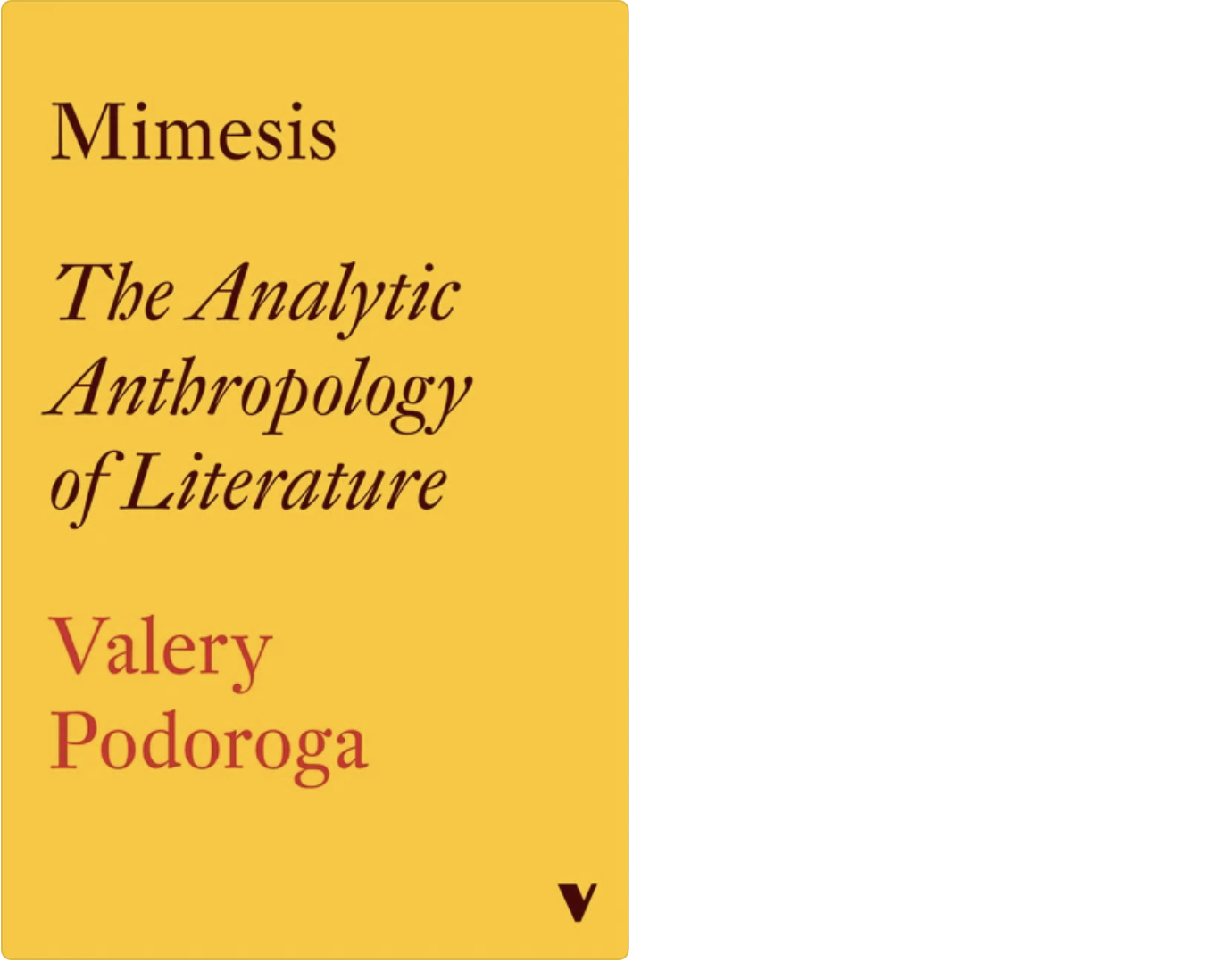Valery Podoroga: “Mimesis. The Analytic Anthropology of Literature”
London: Verso, 2022, ISBN: 978-1786636676, 305 pp.
DOI:
https://doi.org/10.17892/app.2023.00017.326Аннотация
How does one approach a book of a philosopher who insists on being an anthropologist, despite all indications to the contrary? How does one understand this investment in creating and maintaining a terminological façade that embraces a very different kind of structure within? And what is the point of this façade in the first place? Valery Podoroga’s volume under review suggests a plausible answer to these questions – mimesis, that is to say, an ability to imitate; a capacity to appropriate; a skill to uproot, which is coupled with a desire to transpose conventions and approaches from the place of their origin to a new location. Speaking about Voltaire’s works, Erich Auerbach in his foundational study Mimesis: The Representation of Reality in Western Literature (1946) succinctly expressed the gist of the mimetic faculty: “Voltaire arranges reality so that he can use it for his purposes” (p. 411). Mimesis, then, could be seen as a purposefully re-arranged reality, a reality under control, a reality with a maximized use-value. How and to what purpose do these operations of re-arranging, controlling, and maximizing (the value of) reality present themselves in Podoroga’s work?

Загрузки
Опубликован
Как цитировать
Выпуск
Раздел
Лицензия
Copyright (c) 2023 Кино, медиа и цифровая культура Центральной и Восточной Европы

Это произведение доступно по лицензии Creative Commons «Attribution» («Атрибуция») 4.0 Всемирная.





